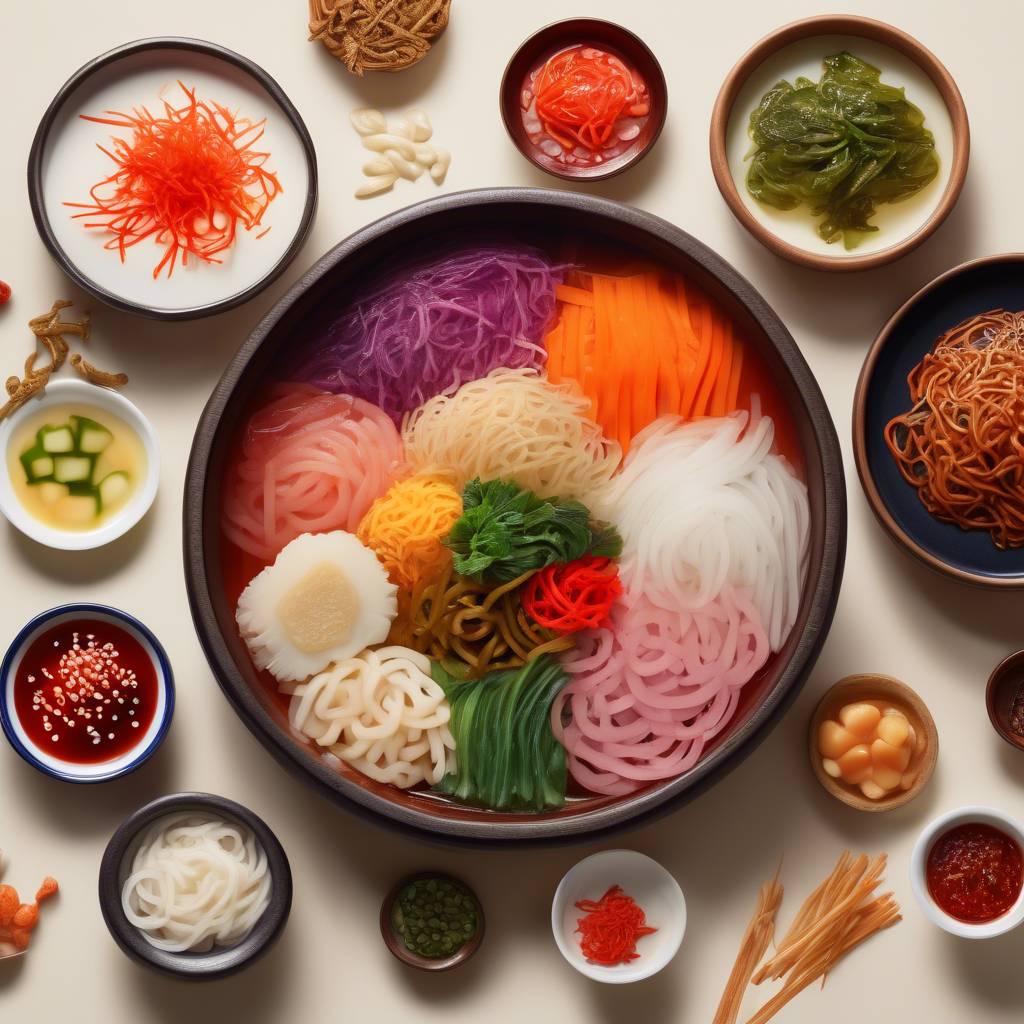A recent study suggests that Korean soybean paste, known as doenjang, may be effective in alleviating symptoms of menopause. The research found that traditional doenjang had more beneficial microbes than commercially produced versions, resulting in a greater reduction in menopausal symptoms. The study included three types of doenjang, with the traditional varieties containing varying levels of beneficial microbes compared to the commercially produced one. Participants who consumed traditional doenjang saw improvement in their menopausal symptoms, as measured by the Kupperman index.
Doenjang is an ancient fermented food that has been a staple in Asian cuisine for over two millennia, predating miso paste. Unlike miso, doenjang is made from unpeeled soybeans and ferments over several weeks to two years, resulting in a tangy, umami flavor with nutty and earthy undertones. Both miso and doenjang are salty due to the fermentation process with salt, which may be a concern for heart and metabolic health. Despite these potential drawbacks, both miso and doenjang are commonly used as flavorings in various dishes and as the base for broths.
The study focused on the impact of fermented foods on the gut microbiome, specifically examining whether the level of bacteria content in doenjang influenced its effectiveness in alleviating menopausal symptoms. The findings revealed that the traditional doenjang varieties containing higher levels of beneficial microbes were more effective in reducing menopausal symptoms, as indicated by changes in the Kupperman index. Additionally, participants who consumed traditional doenjang saw a decrease in LDL cholesterol levels, which may be beneficial for cardiovascular health.
Traditional doenjang differs from its commercial counterpart in terms of the fermentation process and beneficial microorganisms involved. Traditional doenjang contains fungi such as Aspergillus oryzae and bacteria like Bacillus subtilis, which are essential for the Meju fermentation process. Commercial doenjang, on the other hand, is based on Koji and undergoes a shorter maturation period. The study emphasized that further research is needed to fully understand the health benefits of fermented foods, not limited to doenjang but also including other fermented products like kimchi and kombucha.
While the study’s findings are intriguing, there are some limitations that should be considered. The lack of a control group, short duration, and small sample size may impact the interpretation of the results. Additionally, the Hawthorne effect, where participants alter their behavior due to being observed, may have influenced the study outcomes. Nonetheless, the study sheds light on the potential benefits of traditional doenjang in improving menopausal symptoms and highlights the importance of incorporating fermented foods into a balanced diet for overall gut health.
Although fermented foods like doenjang show promise in supporting gut and overall health, more research is needed to confirm their specific effects on menopausal symptoms. Incorporating a variety of fermented foods into a healthy diet may help provide exposure to different probiotic strains and offer comprehensive health benefits. Despite the limitations of the study, it serves as a stepping stone in understanding the potential of fermented foods like doenjang in promoting women’s health during menopause, and further research is necessary to explore these benefits in more depth.









